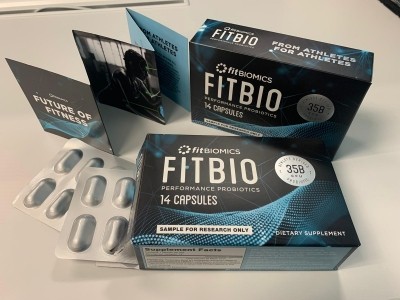New data identifies specific bacterial strain to boost athletic performance

Writing in Nature Medicine, the scientists reported that the running time benefits were linked to the strain’s ability to convert exercise-induced lactate into propionate, a short chain fatty acid (SCFA) that may directly boost performance.
Fitbiomics spun out of Harvard’s Wyss Institute for Biologically Inspired Engineering, and the company’s founder, Jonathan Scheiman, PhD, is the lead author on the new paper.
“FitBiomics is focused on elite athletes as a model for understanding optimal physiology, and analyzing their biological data to develop nutritional interventions. In particular, we’re focused on the microbiome of elite athletes – looking to identify and isolate novel probiotics to disrupt consumer health and wellness,” said Dr Scheiman.
“We're mining this data to identify, purify and functionally validate next-generation probiotic candidates that promote endurance, strength, mental toughness, and recovery for everyday athletes and wellness customers.”
Currently, the company is developing multiple next-generation probiotics strains derived from the microbiome of elite athletes.
The gut microbiota and athletes
Interest in how the gut microbiome is linked to athletic performance – and the potential of modulation of the microbiota via pre- and probiotics to boost performance – is an area of increasing interest. Data from scientists at University College Cork in Ireland in 2014 found that the gut microbiomes of professional Irish rugby players were significantly more diverse than non-athletes. In addition, the researchers found that the rugby players had higher proportions of Akkermansia, compared to non-athletes with high BMI. Akkermansia has been linked to improved metabolic profiles and is reported to have anti-obesity effects.
A follow-on study performed in collaboration with scientists at Imperial College London in England (and also published earlier this year in Gut) found the differences between athletes and sedentary people is “even more evident at the functional or metabolic level”.
Fitbiomics has taken a similar approach, but instead of focusing on Akkermansia they are focused on a strain of Veillonella, which they found were increased in abundance in marathon runners post-race. The team then isolated one strain of Veillonella atypica from stool samples.
Lab mice were then inoculated with this strain and the data indicated that the mice given the bacteria increased their performance in a laboratory treadmill test by 13%, relative to that of the control group.
Additional analysis revealed serum lactate crossed the epithelial barrier into the lumen of the gut and could be metabolized by the bacteria to produce propionate.
“[W]e have shown that the microbiome may be a critical component of physical performance, and highlight the benefits derived from it,” wrote the researchers. “An important question is how this performance-facilitating organism first came to be more prevalent among athletes. We propose that the high-lactate environment of the athlete provides a selective advantage for colonization by lactate-metabolizing organisms such as Veillonella.
“Future studies are needed to help explain why there is an apparent preference for Veillonella and not any of the many other lactate-metabolizing organisms. Veillonella in the physically active host therefore serves as a potential example of a symbiotic relationship in the human microbiome.”
Source: Nature Medicine
Published online, doi: 10.1038/s41591-019-0485-4
“Meta-omics analysis of elite athletes identifies a performance-enhancing microbe that functions via lactate metabolism”
Authors: J. Scheiman et al.
















